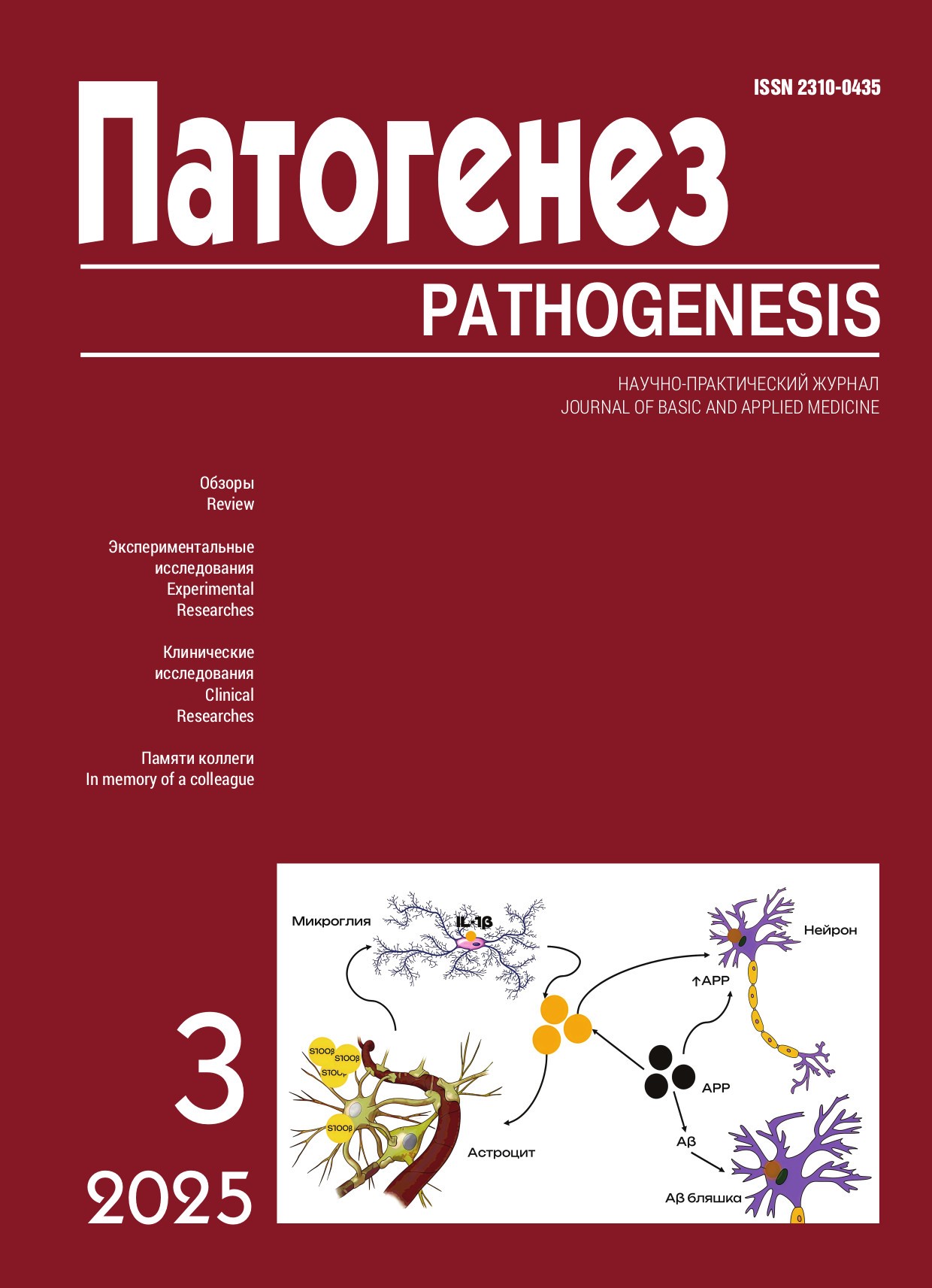Tumor microenvironment in squamous cell carcinoma of the skin
Abstract
Introduction. Squamous cell skin cancer is a relatively slow-growing malignant skin tumor. Unlike basal cell skin cancer, it can metastasize through both lymphatic and hematogenous pathways. While significant progress has been made in the diagnosis and treatment of this disease, further research is needed to better understand and manage it.
Objective. To study spontaneous and stimulated cytokine production in cell cultures of biopsies from patients with squamous cell skin cancer in order to improve the results of treatment for this pathology.
Materials and methods. A study of bioptates was performed on 18 patients with a confirmed diagnosis of squamous cell skin cancer. The study included patients of both sexes who had a confirmed diagnosis based on histological examination at the T1-2N0M0 stage, who did not have metastases, and who had not received chemotherapy or radiation therapy. The comparison group consisted of 10 patients without established oncological pathology. The research methodology involved obtaining purified tumor supernatant with subsequent enzyme immunoassay to study cytokines: IFN-γ (interferon gamma), TNF-α (tumor necrosis factor-alpha), G-CSF (granulocyte colony-stimulating factor), GM-CSF (granulocyte-macrophage colony-stimulating factor), VEGF (vascular endothelial growth factor), TGF-β1 (transforming growth factor beta 1), MCP-1 (monocyte chemotactic protein-1).
Results. It was found that in samples of patients with SCRC, cytokine production is increased compared to healthy skin tissue, which was noted both with spontaneous production and with induction of production by polyclonal activators. However, in the second case, an increase in the amount of TNF-α, IFN-γ, MCP-1, GM-CSF, G-CSF was found compared to spontaneous cytokine production.
Conclusion. Based on the data obtained, it can be concluded that in the development of squamous cell skin cancer, great importance is attached to the microenvironment and the influence of the immune system on the regulation of malignant cell growth. This circumstance must be taken into account when treating squamous cell skin cancer and requires further research.




